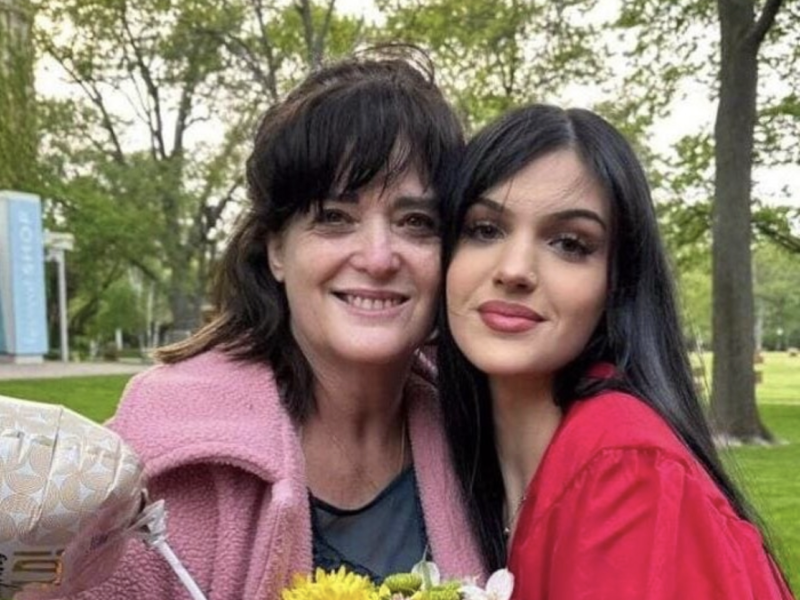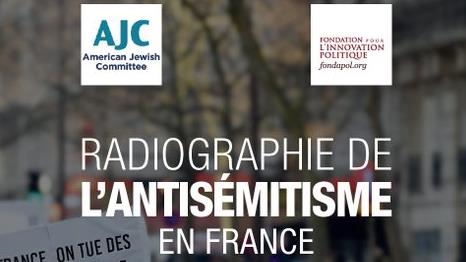The innovation and creativity that has flourished in Portland’s Jewish community lately is now attracting national attention. Two Portlanders – Steve Eisenbach-Budner and Sarah Blattner – recently brought home prestigious national awards.
Every two years the Joshua Venture Group awards fellowships to social entrepreneurs who have the potential to “transform the Jewish landscape.” In a remarkable feat, Portland landed two of the eight slots this year.
“We were very impressed with the strong representation of the West Coast, and particularly Portland, in this cohort,” says JVG Executive Director Lisa Lepson. “We received more than 150 applications from across the U.S. and Canada. The pool was very competitive, and we were pleased to see innovation coming from a smaller community, less known for Jewish start-ups than some of the larger metropolitan communities.”
JVG is a nonprofit organization “dedicated to reinvigorating and expanding the Jewish community through building the capacity of young ventures and their leadership, (which) invests in leaders with unique ideas that we believe will significantly impact the Jewish world.”
JVG’s 2012-2014 Dual Investment Program provides each fellow with $80,000 in unrestricted funding and more than $20,000 in personalized coaching, training and networking during the two-year fellowship. This year The AVI CHAI Foundation partnered with JVG to co-support fellows whose work focuses on day school education, including Sarah’s project.
United by geography and the fact that they are the first recipients to begin the fellowship after age 40, the Portlanders’ groundbreaking ideas are polar extremes in terms of the tools they will use. Steve’s Tivnu venture unites the age-old practice of homebuilding with Jewish text study to promote social justice and affordable housing as Jewish values. Sarah’s Tamritz project will use digital media advances to create a powerful educational tool for Jewish day schools. Tivnu is Hebrew for build, while tamritz means incentive.
TIVNU: BUILDING JUSTICE
In the spring of 2011, Steve Eisenbach-Budner organized two one-day, hands-on social action construction projects. The positive response inspired him to incorporate Tivnu: Building Justice in June of that year. Since then, in partnership with organizations such as Habitat for Humanity and PCUN (Oregon Farmworkers Union), he has sponsored several projects that combine construction, Jewish study and advocacy. Those programs have lasted for one day to one week. The JVC Fellowship will enable Tivnu to expand and offer more and longer programs.
“I am really appreciative they realize this is needed to give someone who is not independently wealthy the time to work on a project and start a new organization,” says Steve, adding that “they are right on” in terms of how to spark creative ventures.
He says the grant enabled him to “quit my day job and focus full time on Tivnu. I count my blessings for it.”
Tivnu combines aspects of many experiences Steve has had in his 48 years.
After serving as president of Young Judaea when he was in 12th grade, he participated in a Young Judaea gap year program in Israel. Drawing on the concept of a break year between high school and college, Tivnu will offer a “bridge year” program beginning next fall.
“The bridge year is meant for kids who’ve finished high school and want a structured program before going on to
the next phase of life, which may be college,” he says. He prefers the term bridge year over gap year because “this is
a more substantial ‘bridge’ to the next
step in life.”
The bridge program and other Tivnu programs draw on some of the ideas and skills from his work with Portland YouthBuilders over the past 10 years. As a construction teacher at YouthBuilders, he worked with at-risk 17- to 24-year-olds to build affordable housing.
“It was a great job working with young people and a talented staff. I could not have gone directly from being a contractor to Tivnu. At YouthBuilders I got a foundation in teaching construction, case management and larger organizational issues,” he says. “Having done YouthBuilders gave me the confidence to know this is doable with added components.”
Steve believes Tivnu has vast potential to build community within the Jewish community and between the Jewish community and other groups.
“I know that the action of getting dirty together, working hard and producing something tangible at the end of a project builds relationships and community in a unique way that study alone doesn’t achieve,” he says, adding, “We do have an education component. We study Jewish texts and the socioeconomic context related to the project.”
Within the Jewish community, he says Tivnu has built cohesion within the synagogues and young adult groups who have participated in short projects. As Tivnu expands to offer projects to the whole community, he says it will continue “to bring together Jews whose paths might not normally meet.”
Tivnu also provides links to communities and people outside the Jewish community. During a week-long building project for PCUN, he says participants gained understanding and ongoing connections with the Hispanic farmworkers with whom they worked, studied and ate.
“They studied Jewish texts with us,” says Steve. “We learned with them about pesticide poisoning, immigration and farmworkers’ labor history in the U.S.”
Following that program, he says several Tivnu participants began to advocate on behalf of farmworkers. Rabbinic student Arielle Rosenberg did a summer internship and presented a program on wage theft at the Mittleman Jewish Community Center.
“I hope outgrowths of the construction projects are broader, long-lasting relationships and learning and commitment to issues raised during the project,” says Steve. “I hope Tivnu can be a conduit to educate the Jewish community and lend a Jewish voice to activism already going on with different organizations.”
While the JVG Fellowship will allow Steve to devote himself full-time to Tivnu, he is still pursuing other funding to help the program grow. Tivnu is also a finalist for grants from the Natan Fund and the Covenant Foundation. “To get to the finalist round shows we are being taken seriously for the Jewish education piece,” he says.
Information on Tivnu projects, including the bridge year, is available at tivnu.org or email steve@tivnu.org.
Steve and his wife, Deborah, have three children: Tamir, 13; Lev, 11; and RozaBess, 4. All three attend Portland Jewish Academy.
TAMRITZ: DIGITAL BADGING
Tamritz grew out of Sarah Blattner’s experiences with four Jewish day schools in different cities. The 42-year-old mother of Aliyah, 11, and Shai, 9, and wife of Marc Blattner, she has been involved in the technology programs as a volunteer or staff at Jewish day schools in Baltimore, Atlanta, Philadelphia and Portland. Sarah was the technology integration specialist at PJA before receiving the JVG Fellowship to launch Tamritz. While each school has valuable technology programs, she says they have been developed largely independently with little national collaboration.
When PJA sent Sarah to the North American Jewish Day School Conference to network about what other day schools were doing, she discovered badge learning. She compares digital badges to the badges Boy Scouts earn. Digital badges are graphic icons that students can post on their Facebook or other social media pages. But the badges are encoded so they cannot be copied, and they link back to the issuing institution to provide a transparent digital transcript of learning and accomplishment. Students actively pursue badges for projects, but earn other badges during the process, such as those that recognize cooperation or some other trait they have exhibited during their online work.
At a conference session sponsored by the Covenent Foundation, she met Barry Joseph, a consultant who helped the Epstein School in Atlanta implement badge learning. Now the associate director for digital learning at the American Museum of Natural History in New York, Joseph spoke about badge learning and how it interfaces with the way kids learn today through digital learning.
“Kids can direct their own learning,” says Sarah of the digital badge program. “Teachers become coaches and facilitators, which is the trend in 21st-century learning. Kids now want to discover and explore and collaborate. Educators have to be artful coaches and guides.”
Now Sarah is creating a national learning network so that Jewish day-school students and teachers can use digital badge learning to collaborate, co-create and co-learn.
“My goal is to develop core badges,” she says. “The first badge I want to develop is for digital media literacy. Schools and teachers can try out and experience the process so they are familiar with the paradigm and can develop their own badges.”
The goal of Tamritz is to create a national network for Jewish teachers and students to collaborate online.
“I’m interested in networks and the idea of sharing,” Sarah says. “There is so much to be gained when sharing and brainstorming and thinking about the same things together. The power is tremendous.”
By spring Sarah expects to have a training curriculum for teachers. Web 2.0 will be an online 10-week course for teachers that will enhance their understanding and skill set of tools available for use in the classroom. The course will also expose teachers to the digital badge concept so they will understand what their students will experience. Over the summer she hopes to have some short programs to bring the teachers together.
By next fall she hopes to have three pilot schools to pilot the badge for digital media literacy.
In addition to the direct funding to support Tamritz, Sarah says she is very excited to have access to the learning resources for herself in terms of creating a strategic business plan and marketing.
“I’m an educator,” she says. “I’ve never run a business before. … They are there to support me. It’s a lot easier to be an entrepreneur when you have a network behind you.”
Having two JVG Fellows in Portland makes networking even easier, she says. “We can share our excitement and challenges. Steve already has gotten his project off the ground, so I can learn from him how he set up the structure. I have good tech skills, so I’m happy to help him with the technology.”
Among her first steps will be to develop her new website, Tamritz.org. Meanwhile, she suggests people seeking more information contact her through Twitter. Her Twitter handle is techbabble88.
“It is clear that the Joshua Venture Group recognized in Sarah those qualities that we, too, recognize: supreme competence in her field coupled with the energy and drive to change the world,” PJA Principal Merrill Hendin wrote in a letter to PJA parents.
Caption: National fellowship recipients Sarah Blattner(L) and Steve Eisenbach-Budner may use very different tools, but their vision is the same – to build a brighter future for a more involved, educated Jewish community. The Portlanders received two of the eight awards presented by the Joshua Venture Group, which invests in leaders with unique ideas that JVG believes will significantly impact the Jewish world. Sarah plans to bring the new technology of digital badging to Jewish day schools to help them expand their curriculum and motivate students. Steve unites the ancient tools of home building and Jewish texts, along with the study of modern socioeconomics, to create bonds within the Jewish community and between the Jewish community and other groups.





